Rangers: Ian Durrant on working with 'ruthless' Souness and that Simpson tackle
- Published
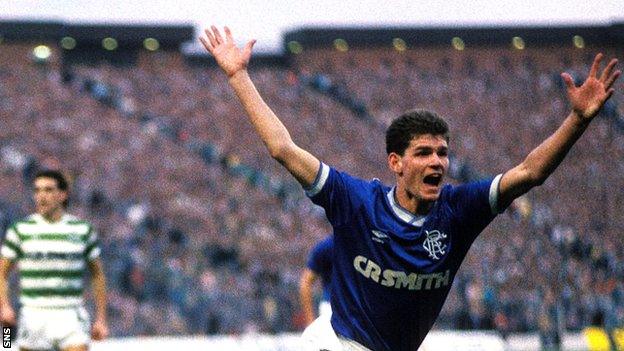
Ian Durrant celebrates scoring for Rangers against Celtic in the 1986 League Cup final
Within days of addressing the Rangers squad for the first time as player/manager, Graeme Souness had told 14 players that they would leaving the club.
"He was ruthless," says Ian Durrant, who was one of a core of Scottish players to be offered contract extensions, but the midfielder was soon to find out how blunt Souness could be.
"We had a few altercations, one on the training ground when he put one on my chin and I wasn't getting up for the second round," Durrant recalls, laughing.
"I overstepped the mark trying to be too fly and he put me in my place. After that, we had a great relationship.
"He didn't want to be in second place and he knew what lay ahead."
There was much lying ahead for Durrant, too.
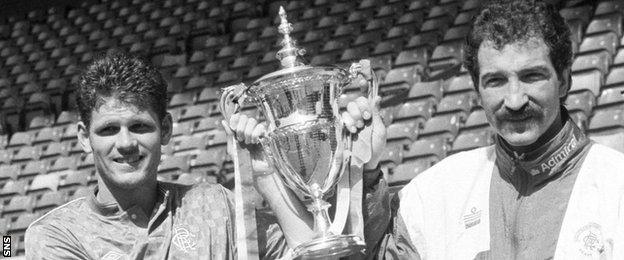
The tackle
For a time, the lithe, skinny figure of Durrant was spellbinding. He burst from midfield and played with an alertness and awareness of the where the game would open up.
By 1988, the 22-year-old was establishing himself as a midfield player of significant talent and reputation, but then a high, studs up tackle from Aberdeen's Neil Simpson's left Durrant with a cruciate ligament injury that took three years for him to recover from.
Twice Durrant was told by doctors that he would not play again. It took a third operation in America to rescue his career.
"I was never going to be the same player," he says. "I went from being a runner breaking the lines to being more of a passing player. My whole game changed. I never had the spark that I used to have.
"[I've] never spoken to [Simpson]. At the time of the tackle you're bitter, because you're told by surgeons that you're going to be out for a lengthy time. But over time it heals. Sometimes you do look back and think what could have been.
"There were disappointments, a mental thing going on in my head: will I get back?"
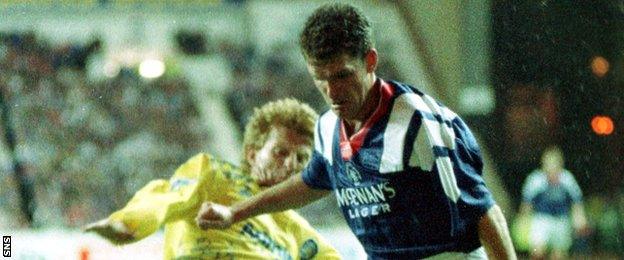
Durrant is chased by Leeds United's Gordon Strachan during a 1992 Champions League tie
The coaching
Durrant remained part of the Rangers squad that won nine consecutive league titles, then in 1998 moved to Kilmarnock, who were managed by his former team-mate Bobby Williamson.
He spent four years in the side at Rugby Park - "the pressure of playing for the Old Firm was taken away from me and I thoroughly enjoyed that" - before turning to coaching, a career change that eventually took him back to Ibrox, where he saw at first-hand the troubled reign of Paul Le Guen.
The Frenchman lasted only seven months in the job, when a combination of player unrest and poor results saw him depart and be replaced by Walter Smith. "I don't think [Le Guen] did his homework on the Scottish game," he says.
Durrant was at the club in February 2012 when Rangers Football Club Plc were put into administration and subsequently liquidation, and worked through the Charles Green era, a time when Ibrox was a place of endless turmoil and the team had to work its way back up from the bottom tier.
"At that time, you got a club suit with a bullseye on the back of it," he says.
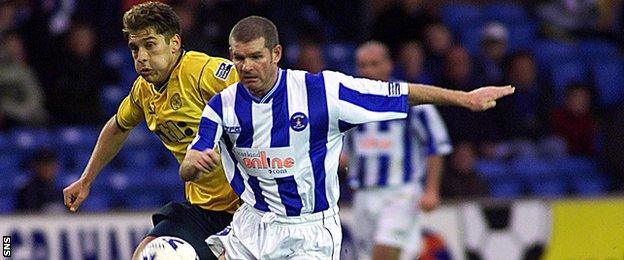
Durrant played for Killie for four seasons before beginning his coaching career there
"[Green] came in with the fanfare, trumpets, straw hats, balloons, everything. We were going for certain players, and then all of a sudden we don't have the money for that.
"It wasn't long before we knew we were fighting fires again. It just went from one disaster to another disaster.
"I saw my best friend [McCoist] age overnight. I wanted it to end for him, it was too much, it was hurting him and his family. You know Ally, he tries to make everything bubbly, but I knew inside it was killing him.
"It was horrendous. He's getting a phone call to go to Ibrox for a meeting which is nothing to do with football, it's financial, cut back this, people are losing their jobs."
The departure
Durrant left Rangers last summer, having spent more than a season working with the development squad. It ended a 25-year association with the club, over two spells, but he saw the change coming under manager Mark Warburton.
"I knew they were wanting to change, six or seven months ago," he said. "I was sad to go, but I'd geared myself up for leaving.
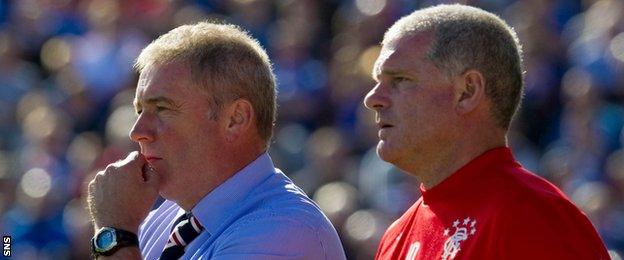
McCoist and Durrant were team-mates at Rangers and Kilmarnock before coaching together at Ibrox
"[Warburton] said he wanted the club to go in a different direction. In the youth department, it's a young man's game. I'm nearly 50 now and he's wanting to re-energise it."
Still emotionally committed to the club, Durrant believes Rangers can compete with Celtic, at least in the upcoming Old Firm game at Celtic Park, despite an unconvincing opening to the league campaign.
"It's not been that bad a start to the season," he says. "They'll go in as underdogs, but the underdogs have shown in that past that they can have their day."
- Published2 September 2016

- Published30 August 2016
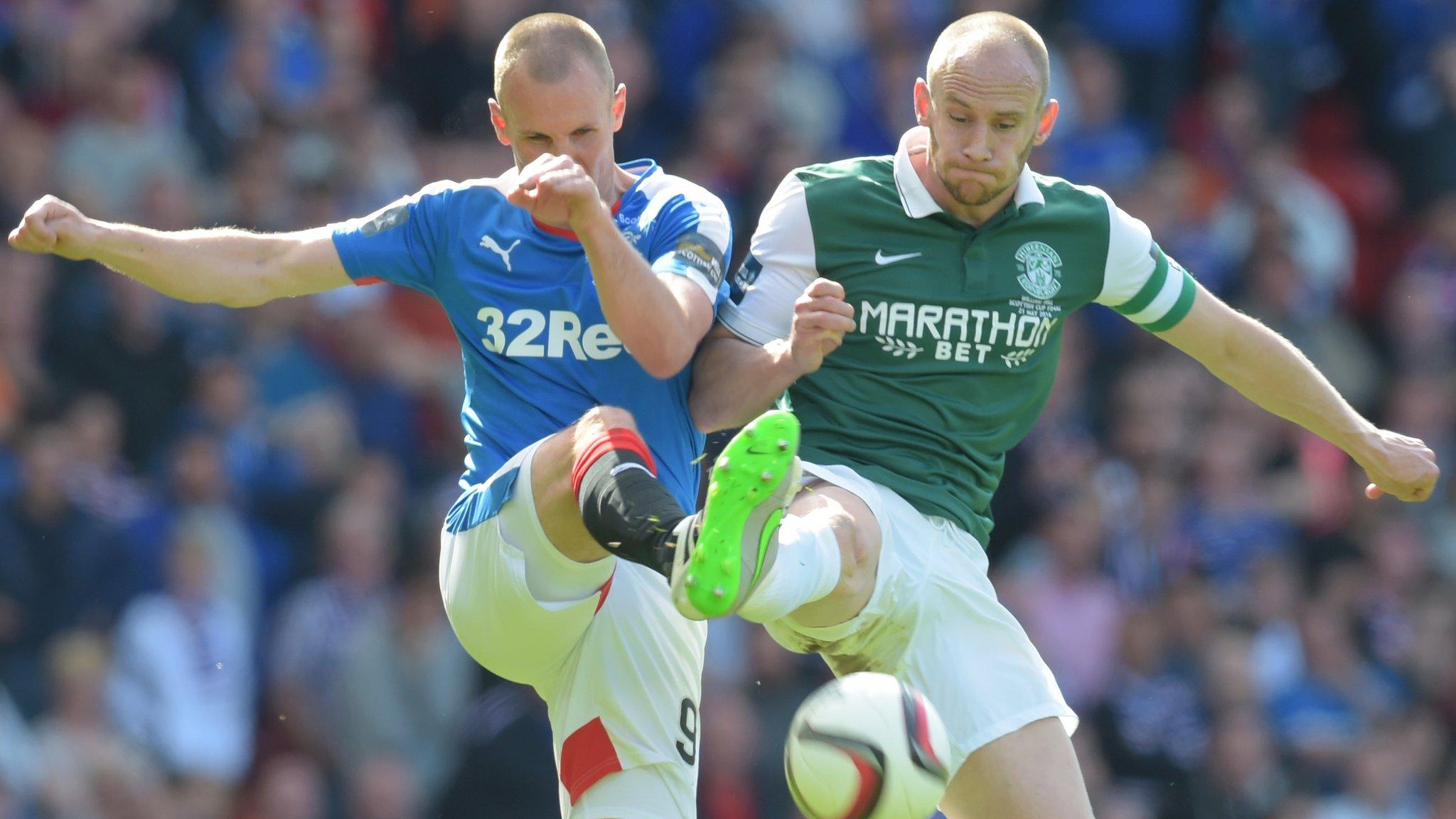
- Published30 August 2016
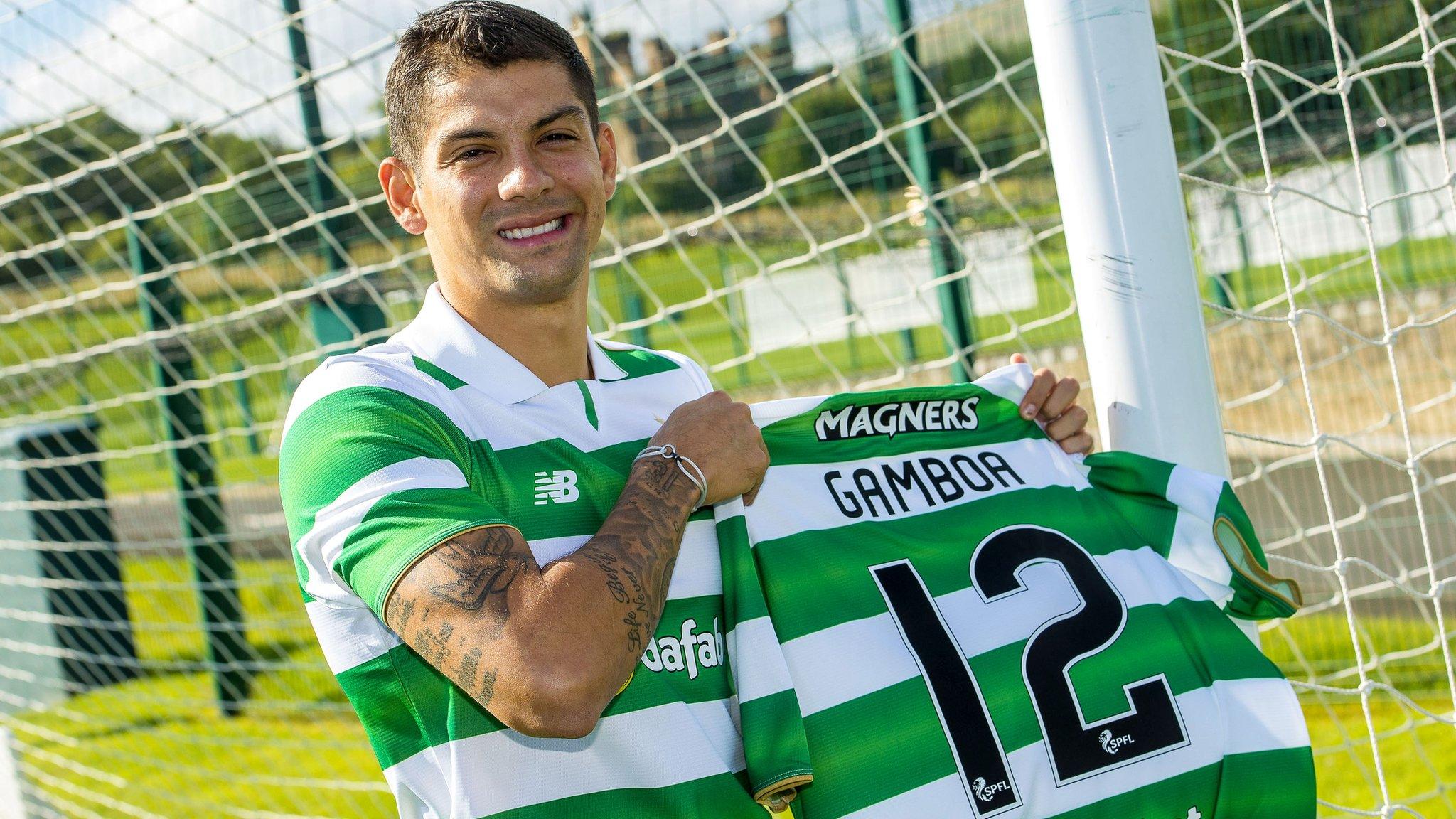
- Published14 January 2018
- Published7 June 2019
